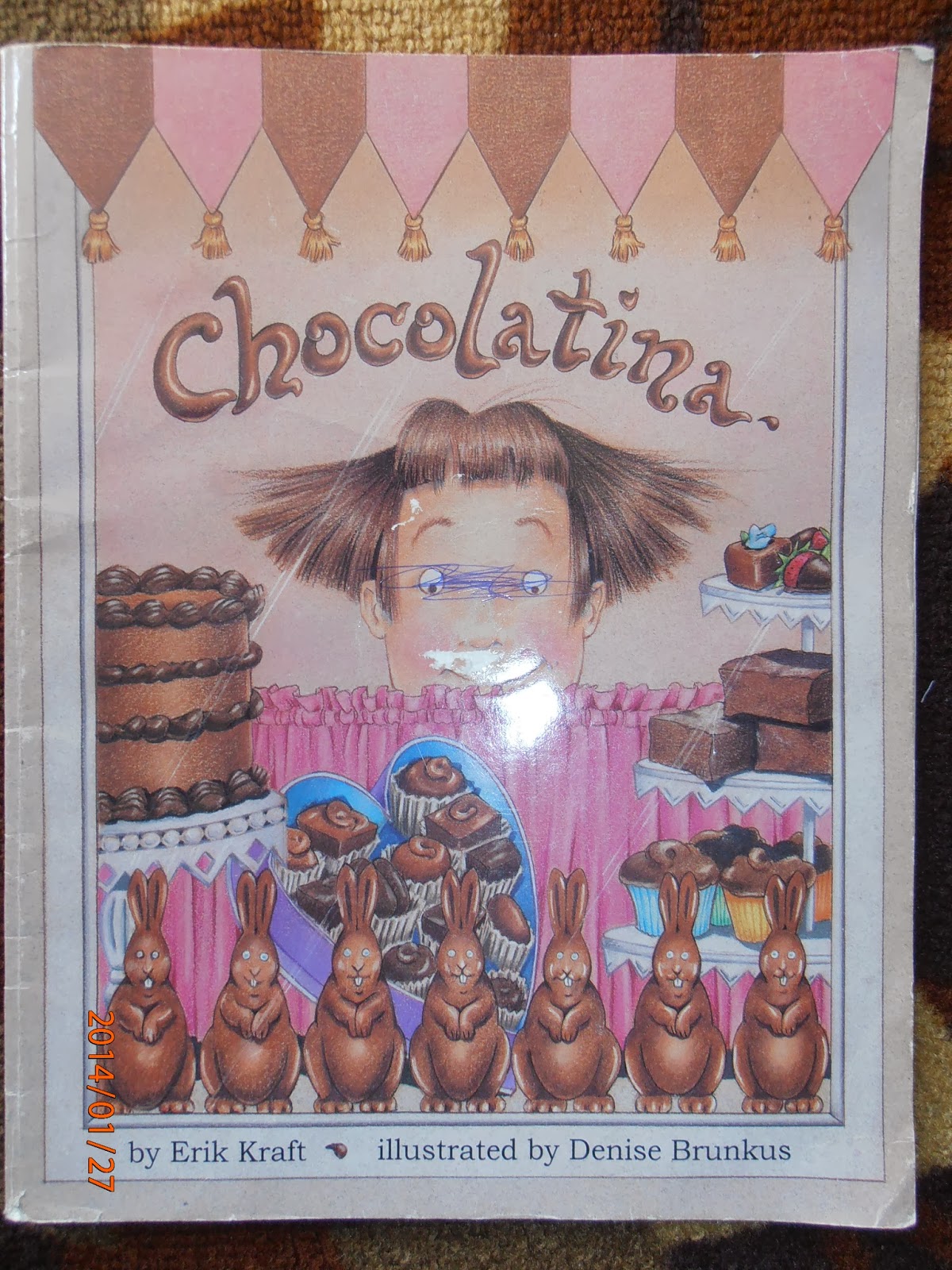 Today bookworms came together in the home of aunty Atefa. Smaller children had their usual book club reading - this time, it was a book by Erik Kraft titled "Chocolatina".
Today bookworms came together in the home of aunty Atefa. Smaller children had their usual book club reading - this time, it was a book by Erik Kraft titled "Chocolatina". About the book: "You are what you eat," Mrs Ferdman reminds her students during every health class. But all Tina likes to eat is chocolate. On day she wishes Mrs. Ferdman's favourite saying were true, and the very next morning, she wakes up a completely chocolate girl! What will the other kids think? What will Mrs. Ferdman do? And will Tina ever become un-chocolate again? Kids who like chocolate - and even kids who don't - will love this scrumptious story and its delightful illustrations.
Before starting their reading, small bookworms had a discussion about their favourite foods. When Umm Uzair asked them to name their favourite food, we discovered that girls had the tooth for sweets (brownies, cupcakes, chocolate, etc.), while boys voted for savoury items (pizza, cheese, etc.). Children discussed, what it would be like to eat only their one favourite food for an entire month - for breakfast, lunch and dinner. As they talked, how it would affect their bodies, they realized that cake-eaters would most probably look a lot more heavy by the end of the month. Likewise, starving with no food for a month would make us loose a lot of weight and would leave a very negative impact on our health.

Then, small bookworms continued their discussion about the kinds of food that are good or not good for us, and what it actually means, if we say "you are what you eat" - a phrase that would appear in the book they were about to read.
After reading the book, small bookworms had a colouring activity - from among a variety of foods on the page, they had to colour only the ones, which would be good for their health.
Big bookworms had an excellent opportunity to see under microscope a variety of cells. The presentation was prepared and given to children by Dr. Sophia and aunty Lubna, who is a science teacher. Here is a diary entry that one of the bookworms wrote after this presentation:
Dear Diary,
Today I will tell you about a microscope I saw - a real microscope in the bookworms club. Sophia aunty is a doctor and her son has a microscope, so Sophia aunty decided to bring it. Oh and the book club I am talking about was on 22-01-2014. So where was I - oh yeah, so she got the microscope and she showed us how the inner skin of an onion looks like. First she talked about plant cells and animal cells - about how they are different from each other. She said that the difference is that plant cells have walls around them and animal cells don't. And that human cells and animal cells are the same. Then she showed us the onion cells. Then, when everybody was gone, I said to Sophia aunty that I wished I cold see blood cells. Then she said that she had a sample right there. She put it in the microscope. It was like a shirt design - there were thousands and thousands of small tiny red dots. I decided to call my friends to see it too. Sophia aunty had some more samples but I didn't see them all - only another plant cell from a different plant. Those plant cells were bigger.









